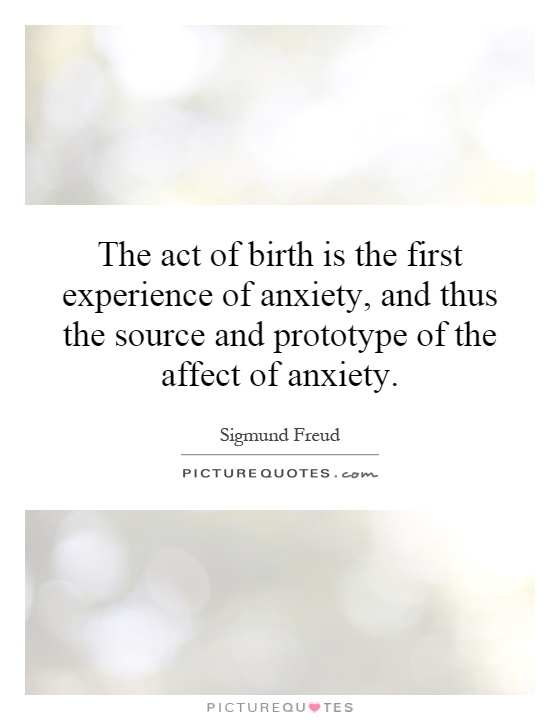The act of birth is the first experience of anxiety, and thus the source and prototype of the affect of anxiety

The act of birth is the first experience of anxiety, and thus the source and prototype of the affect of anxiety
Sigmund Freud, the father of psychoanalysis, believed that the act of birth is the first experience of anxiety and serves as the source and prototype of the affect of anxiety. This concept is rooted in Freud's theory of psychosexual development, particularly in the first stage known as the oral stage.According to Freud, the oral stage occurs during the first year of life and is characterized by the infant's primary focus on oral pleasure through activities such as sucking and feeding. The infant's experience of birth, which involves the separation from the mother's body and the entrance into the outside world, is a traumatic event that sets the stage for future anxieties. This separation from the mother's body represents the first experience of loss and the beginning of the individual's journey towards independence.
Freud believed that anxiety is a fundamental aspect of human existence and is rooted in the fear of separation and loss. The act of birth, with its inherent separation from the mother, serves as the initial trigger for this anxiety. The infant's experience of being thrust into a new and unfamiliar world outside the womb creates a sense of vulnerability and helplessness, leading to feelings of anxiety and insecurity.
Furthermore, Freud argued that the experience of birth also lays the foundation for the development of the ego, which is responsible for managing anxiety and mediating between the demands of the id (instinctual drives) and the superego (internalized moral standards). The ego's primary function is to protect the individual from anxiety by employing defense mechanisms such as repression, denial, and displacement.












 Friendship Quotes
Friendship Quotes Love Quotes
Love Quotes Life Quotes
Life Quotes Funny Quotes
Funny Quotes Motivational Quotes
Motivational Quotes Inspirational Quotes
Inspirational Quotes